Global Challenges: CHINA (PLAN Major Naval Info.)
1/50
Earn XP
Description and Tags
Major Surface Vessels, Submarines, Aircraft, and Missiles of the People's Liberation Army (Navy).
Name | Mastery | Learn | Test | Matching | Spaced |
|---|
No study sessions yet.
51 Terms
Renhai Class Cruiser
Type 055 Destroyer
Single forward gun
newest & most capable surface combatant
commissioned 2020, over 16 more planned for construction
displaces more water than Ticonderoga and Arleigh Burke
stealthy
112-cell vertical launch system (VLS)
Aircraft: 2 helicopters
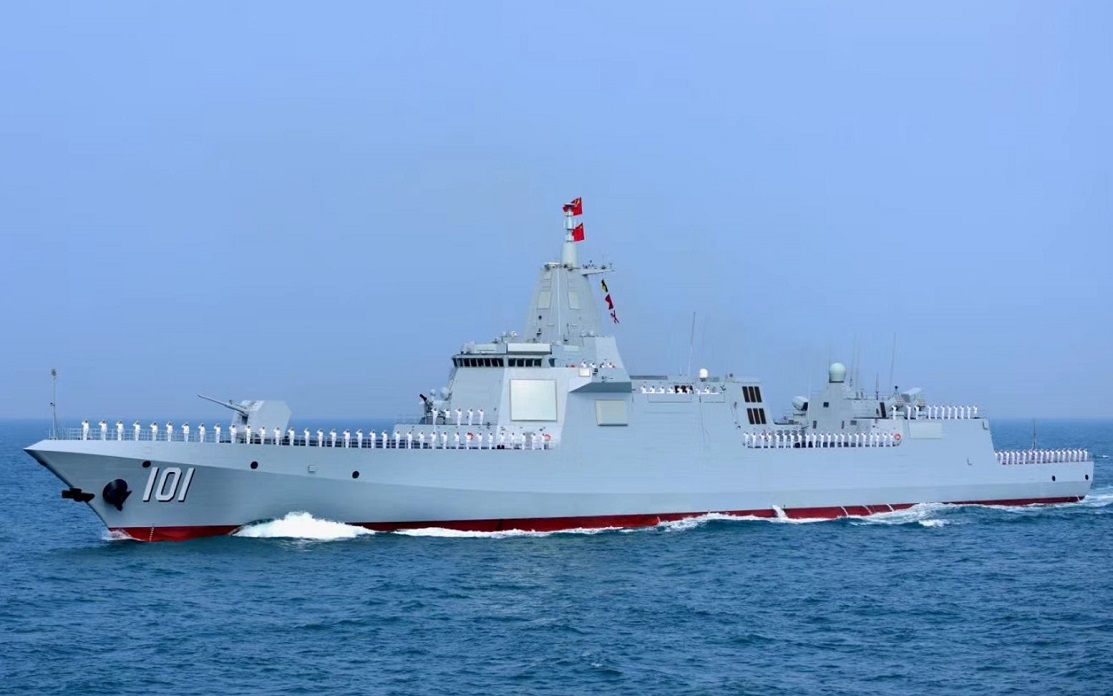
Luyang III Class Destroyer
515 ft
VID: Long; “174” on side
active electronically scanned array (AESA) radar
Chinese Aegis
guided missile destroyer
6 torpedo tubes, 64 VLS cells, 2 helicopters

CV-16 Liaoning Aircraft Carrier
ski-jump catapult (curved upwards)
999 ft in length
first aircraft carrier (2016)
bought from Russia (“floating casino?”)
only air defense weapons (18 cell missile system); must use aircraft for surface attack
40 fixed wing & rotary wing aircraft
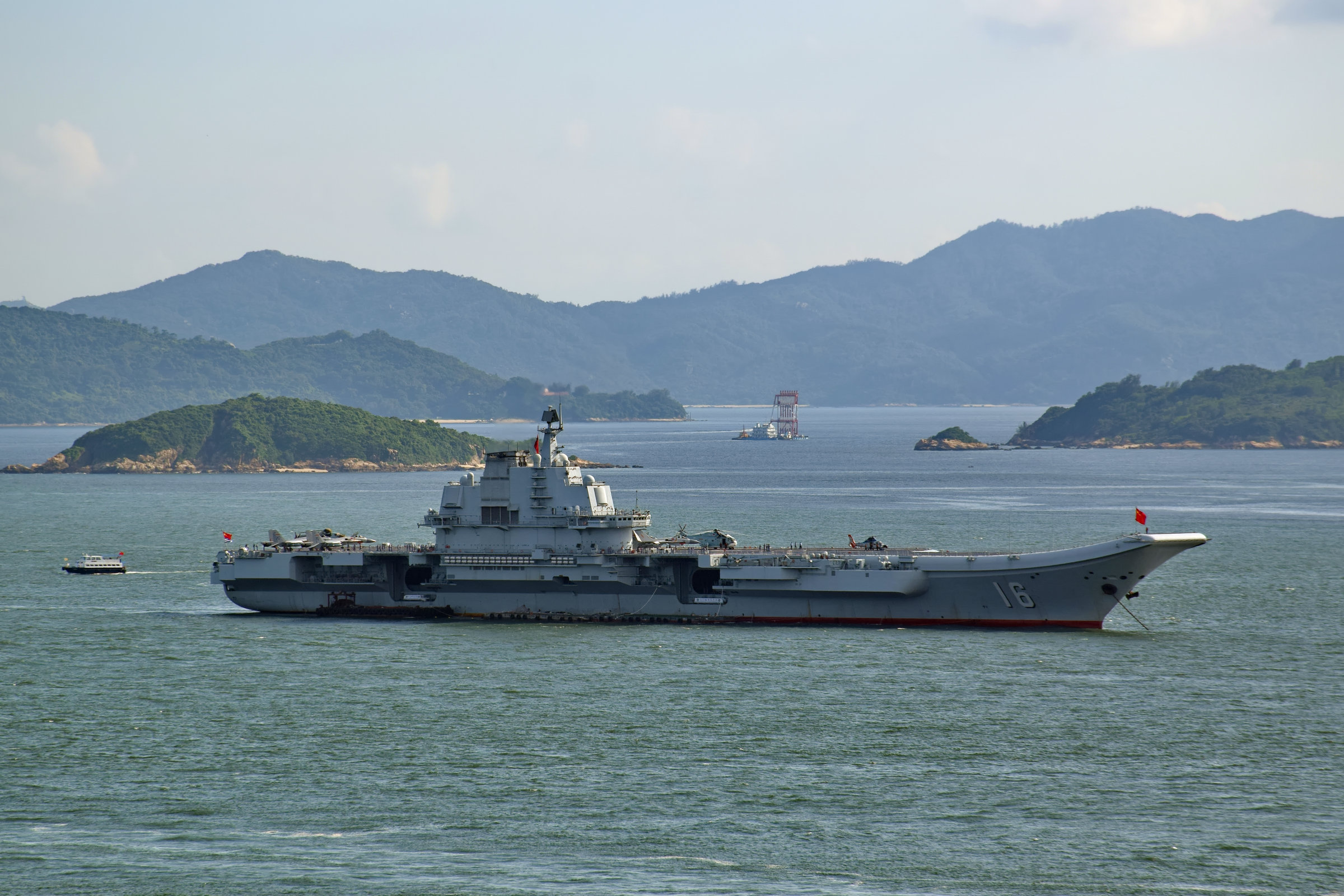
Jin Class Strategic Missile Submarine (Type 094)
Type 094
ballistic missile submarine (SSBN)
4 of them (construction was supposed to be 6)
have not been sent on long-range deterrent patrol missions; however, patrolling South China Sea
Crew: 140
Nuclear propulsion
12x Submarine Launched Ballistic Missiles
6x torpedo tubes
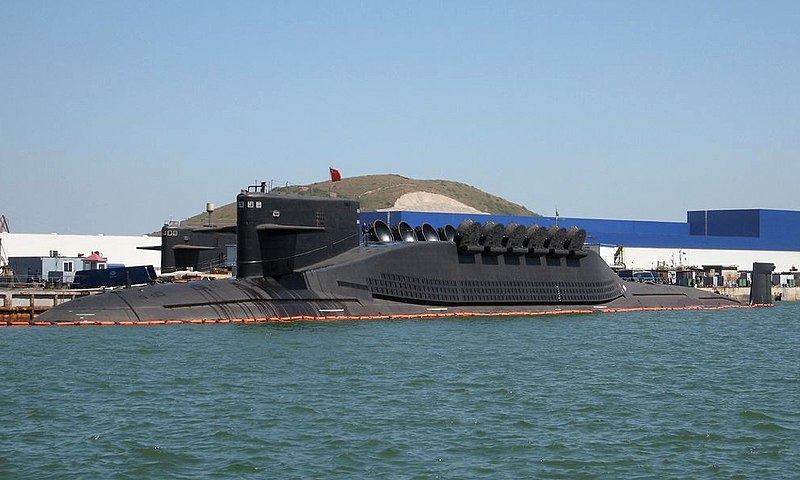
Shang Class Attack Submarine (Type 093)
second-generation nuclear-powered attack submarine
Type 093
in conjunction with Russian experts
confirmed to have vertical launching system (VLS)
can launch supersonic anti-ship missiles, cruise missiles
Crew: 100 (smaller)
6x torpedo tubes, VLS
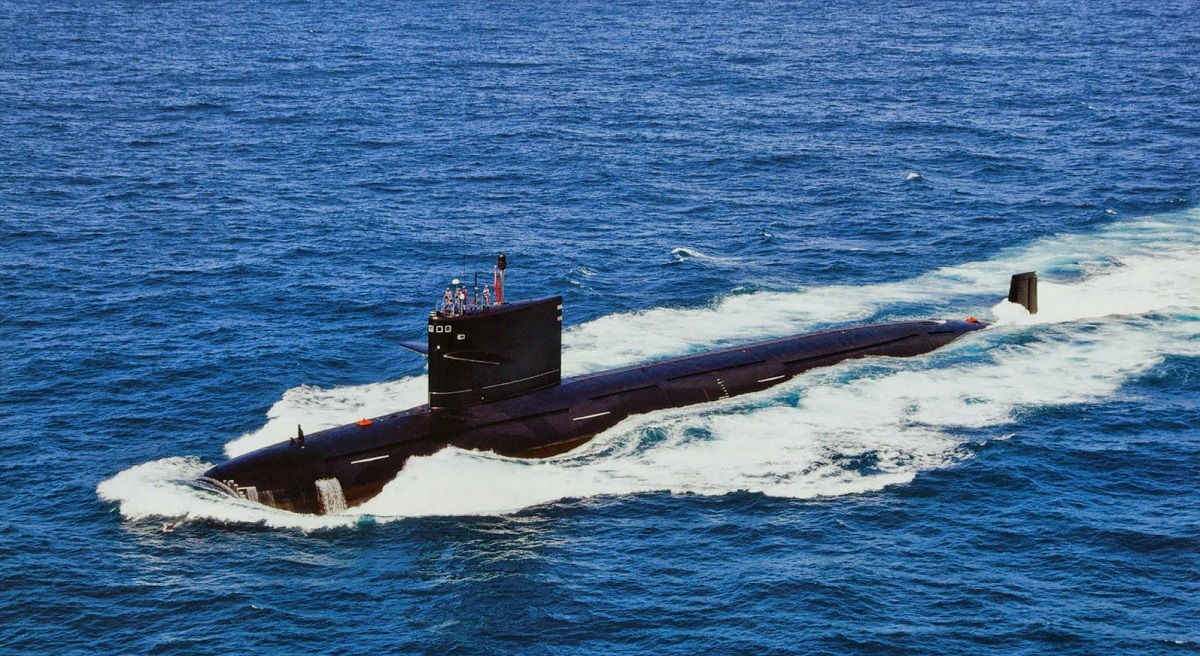
Yuan Class Submarine (Type 039A)
diesel-electric submarine
Type 039A
air-independent propulsion
QUIET
advanced noise reduction; difficult to track
Crew: 36 (smallest crew, gets alphabetically smaller)
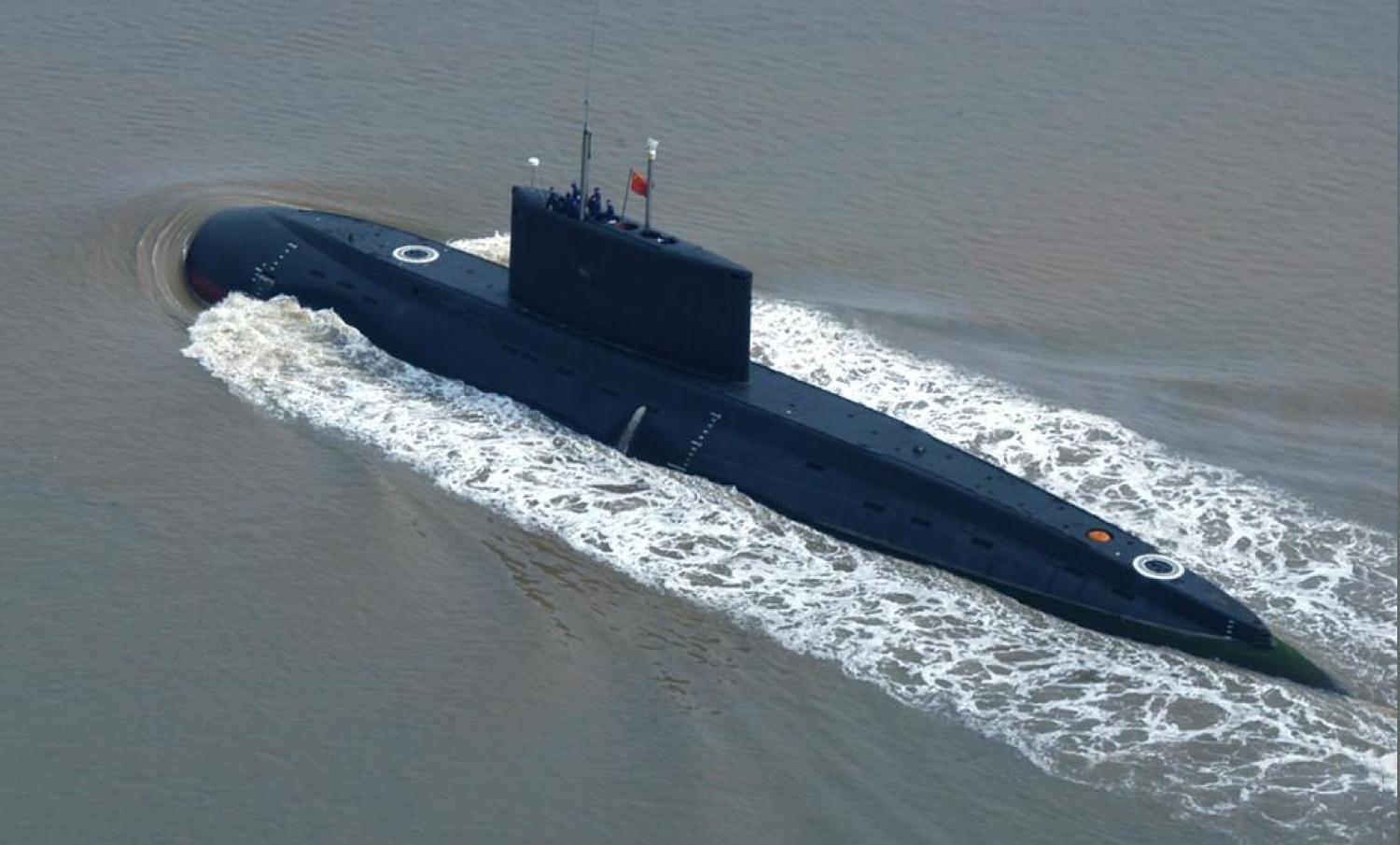
Su-30 Flanker
upgraded with avionics, maritime strike capabilities, and electronic warfare systems
similar to American F-15E Strike Eagle
heavy class, all-weather, long-range strike fighter
often intercepts U.S. reconnaissance aircraft in East/South China Seas (ex. P-8)
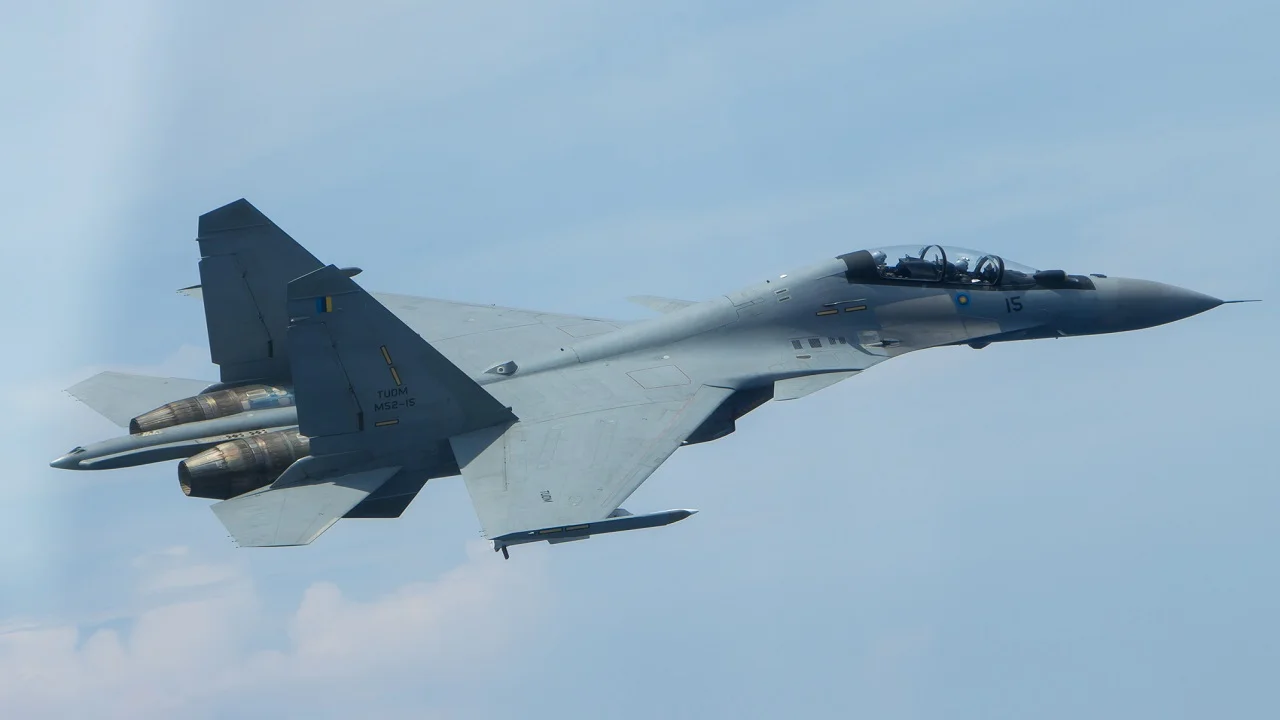
J-15 Flanker X2
the carrier-based aircraft of the PLA Air Force
4th generation, twin-jet, all-weather fighter aircraft
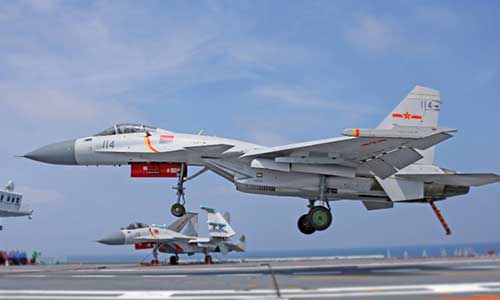
YJ-12
Chinese supersonic anti-ship cruise missile
grave threat to American carrier strike groups
sea-skimming
would only have 45 seconds to engage before impact
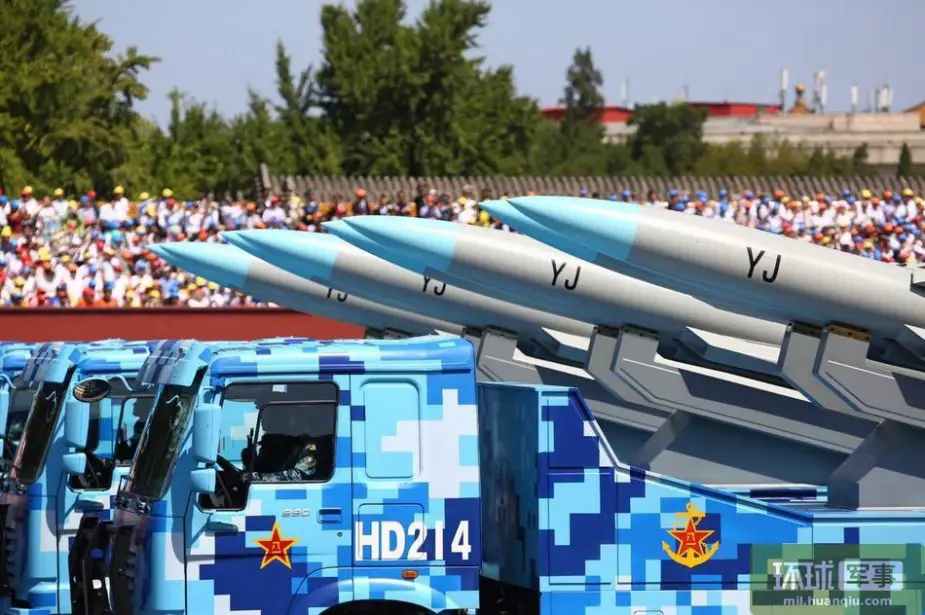
YJ-18
Chinese family of anti-ship and land attack cruise missiles
subsonic cruise mode & supersonic terminal attack
range = 290 nautical miles
BeiDou Navigation Satellite System (inertial guidance system)
660 lb high-explosive warhead or anti-radiation warhead
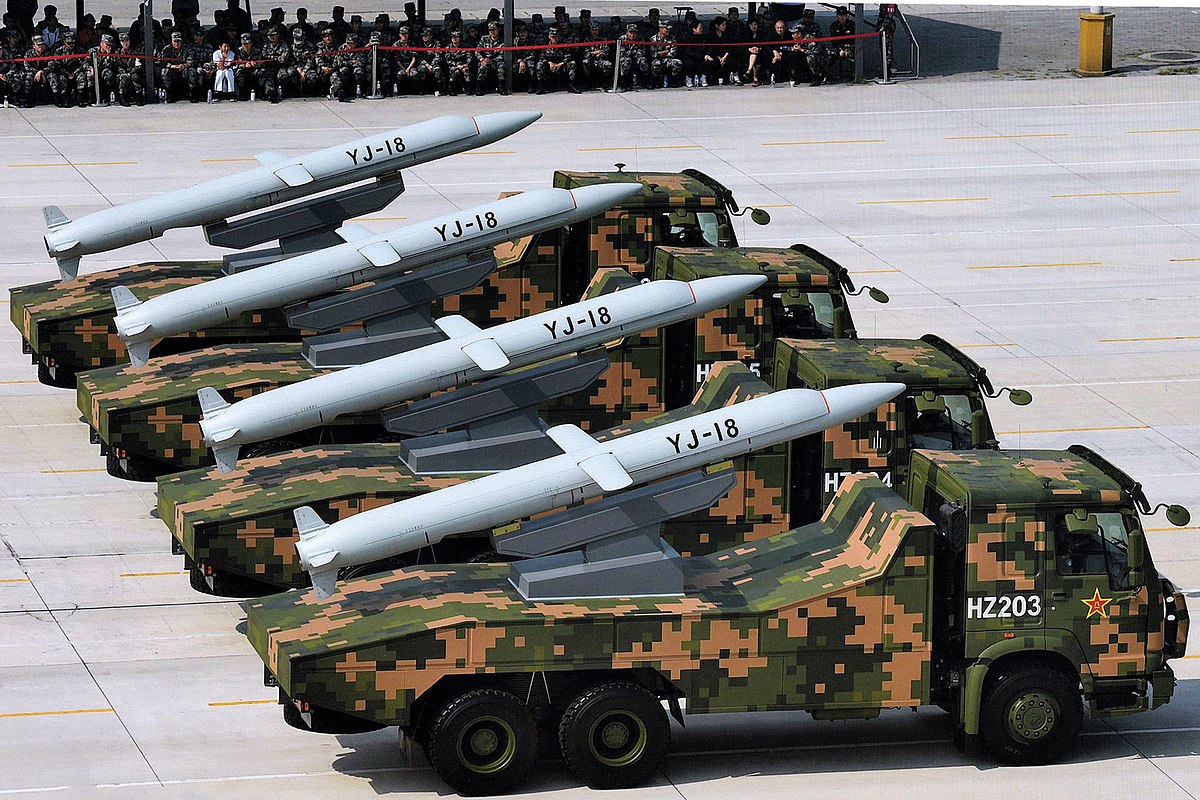
Dong-Feng 21
“Carrier Killer Missile”
two-stage, solid-fuel rocket, single-warhead
medium-range ballistic missile (MRBM)
world’s first anti-ship ballistic missile (ASBM)
enhance China’s ability to prevent US carriers from operating in the Taiwan Strait
Dong-Feng 26
“Guam Killer”
conventional and nuclear strikes
range: 4,500 kilometers
capable of striking strategic facilities on Guam, Darwin, and Diego Garcia
1) building a more lethal force to gain military advantage
2) strengthening allies and partners to generate robust networks that can advance shared interests
3) reforming the Department of Defense to realize greater performance and affordability
4) expanding the competitive space to create U.S. advantages and impose dilemmas on competitors
U.S. Response (four strategies)…
Department of Defense
National Defense Strategy (NDS)
Hainan Island Incident (2001)
Chinese air force plane collided in mid-air with U.S. surveillance plane
Chinese plane crashed into sea; U.S. aircraft had to land on island
11-day standoff over China’s holding of plane and 24 crew members
tensions during George W. Bush presidency
Peace Mission (2005)
China and Russia held first joint military exercises
Missile Test (2007)
missile test in space, shot down old weather satellite; US, Japan, etc. express concern over China’s military buildup
South China Sea (2012)
Philippines and Chinese naval vessels confronted each other off Scarborough Shoal reef; both countries claim the reef (oil & gas reserves)
Loaning 16 (2012)
China launched first aircraft carrier, converted from Soviet aircraft vessel
Spratly Islands (2015)
China expressed anger at US naval ship sailing by artificial reefs Beijing is building among disputed islands in South China Sea
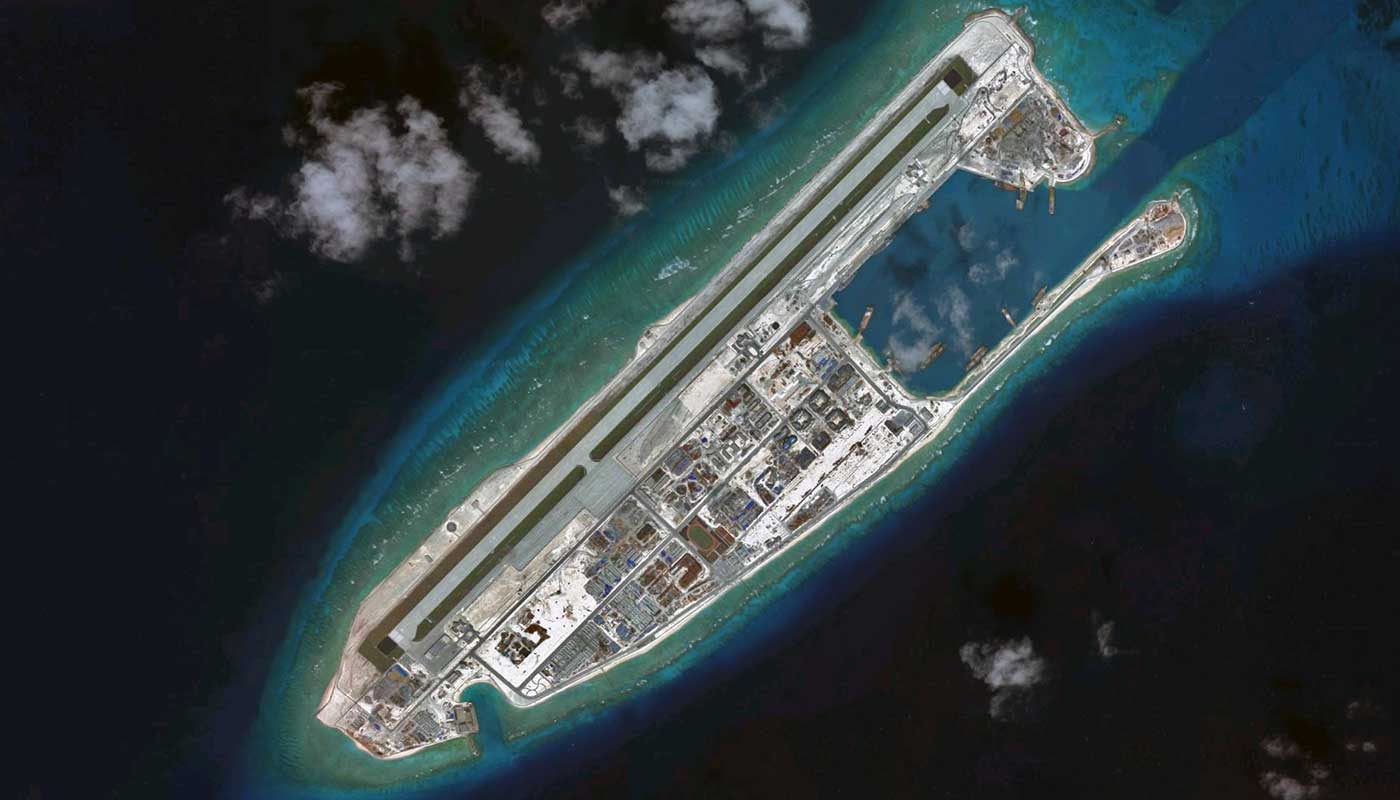
Sandong 17 (2017)
first-generation Chinese aircraft carrier launched for PLAN; 2nd aircraft carrier; 1st built domestically
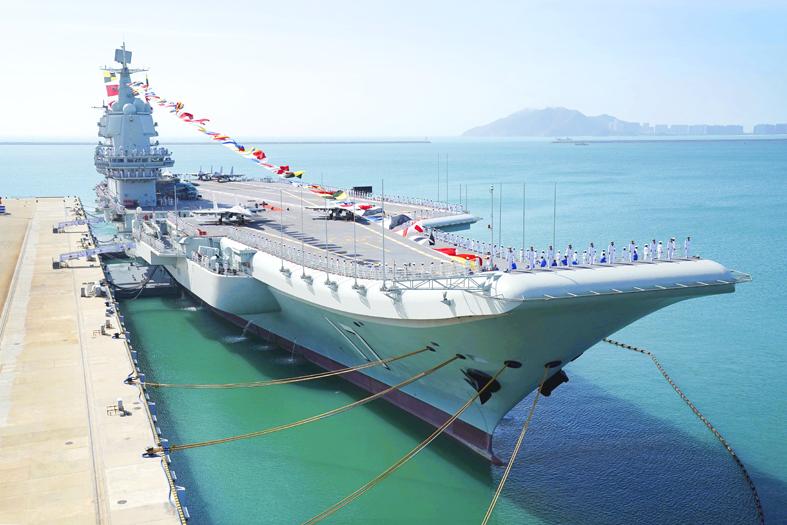
Largest PLAN flotilla at sea (2018)
48 ships, dozens of fighter jets; 10,000 military personnel deployed to South China Sea
PLAN triples in size since 2000 (2020)
360 ships, over 60 more than U.S. Navy
Intentions of building to 400 ships by 2025
transformation into powerful modern military
Xi Jinping
Who is the President of China?
One Belt, One Road (OBOR)
Belt and Road Initiative (BRI)
“21st Century Maritime Road”
announced 2013
aims to “strengthen China’s connectivity with the world” (create a massive economically-tied empire)
investment projects
high-speed rail, highways, pipelines, energy projects, power plants, port infrastructure
ambitious (encompasses all regions of world including Arctic & Latin America)
65, $23 trillion, 4 billion
The current OBOR plan extends to…
__ countries
with a combined Gross Domestic Product (GDP) of _____
and includes over _____ people
transparency, non-aggression
The NDS sets the U.S. military relationship with China on a path of _______ and _______.
whole-of-government
The Department of Defense supports a _______ response.
People’s Liberation Army
PLA
People’s Liberation Army Navy
PLAN
People’s Liberation Army Air Force
PLAAF
People’s Liberation Army Rocket Force
PLARF
2018
In ____ China indicated interest in establishing bases in Cambodia and Vanuatu.
Indo-Pacific
China seeks to displace the US in the _______ region.
2013
When did China announce the Belt and Road Initiative (BRI)?
2030
China seeks to be the world leader in artificial intelligence by ____. (“Made in China 2025” industrial strategy)
First Island Chain
Taiwan, Philippines, Indonesia, Malaysia, Vietnam
“springboards,” “wall,” “barrier to be breached by an attacker or strengthened by a defender”
Second Island Chain
Japan, Guam, Palau, tiny islands
China Telecom
China Unicom
China Mobile
Huawei
ZTE
Chinese state-owned or state-affiliated enterprises (5)
aggregate capabilities
China is NOT close to catching up to the United States in terms of ___ ___.
immediate periphery
China does NOT need to catch up to challenge the United States on its ___ ___.
preeminent power
China seeks to reorder the region in its favor as the ___ ___.
21st Century Maritime Road
high-speed rail, highways, pipelines, energy projects like power plants, and investments in port infrastructure
21st Century Digital Silk Road
Chinese state-owned/state-affiliated enterprises have invested/submitted bids globally in areas such as 5G mobile technology, fiber optic links, undersea cables, remote sensing infrastructure connected to China’s Beidou satellite navigation system, and other information and communications technology infrastructure.
2027
“basically” achieve military modernization by ____
2035
completing military modernization by ____
2049
transforming into a dominant military by ____
2027
by ____, Beijing seeks to develop key capabilities and better posture for a conflict with any country it views as a threat, including the United States
2017
articulated goal of establishing a “world-class military” (essentially one as strong as the United States) in ____
military
China’s expanding global activities are not primarily or exclusively a _______ issue.
5, 1, 1, 27
__ SSBNs
__ aircraft carrier, __ building
__ Destroyers
2017
In ____, China’s leaders stated that the OBOR encompasses “all regions of the world,” including the Arctic and Latin America.